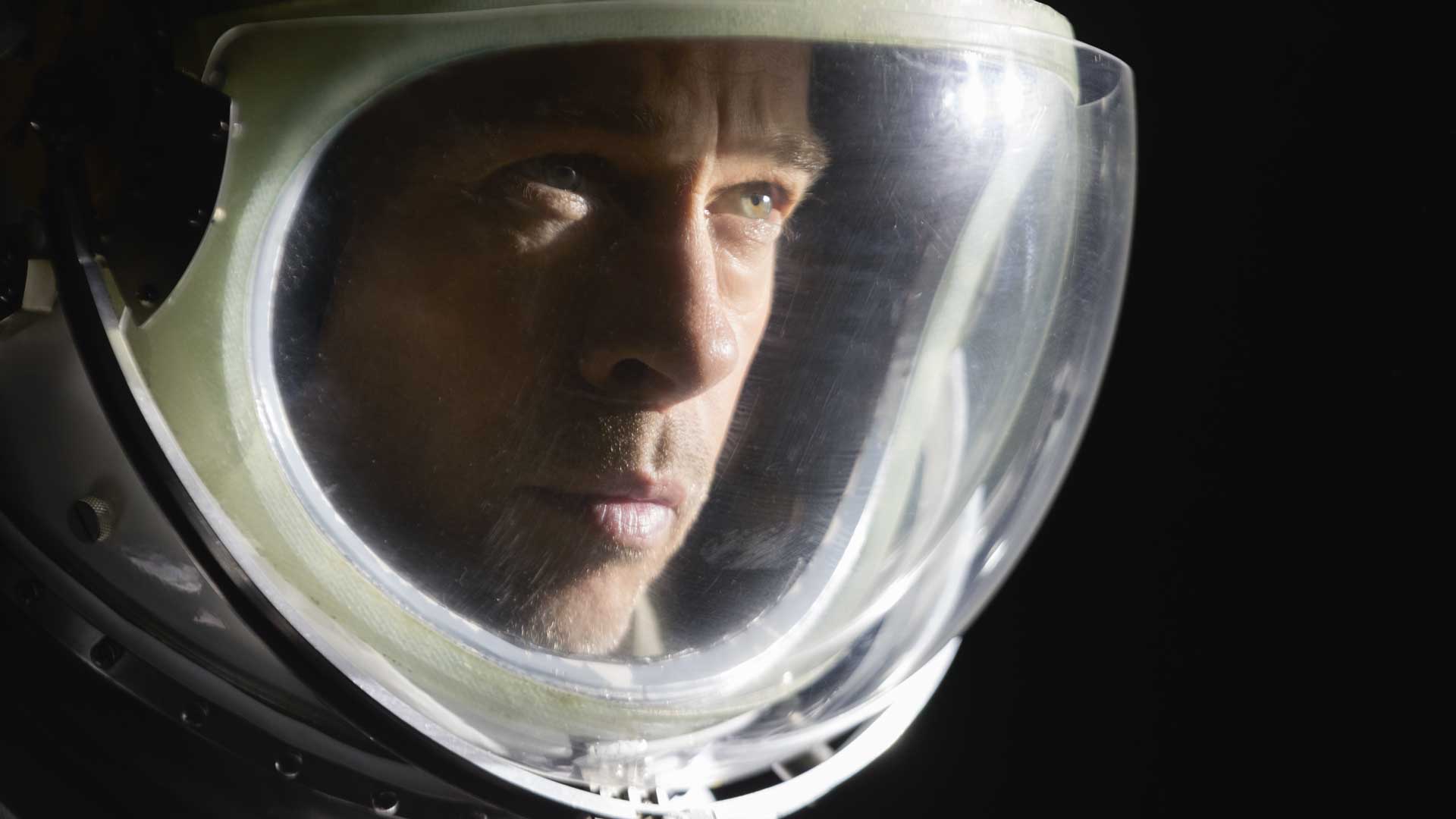With his thinky existential space epic Ad Astra (“to the stars” in Latin), director James Gray has made what is perhaps the most anti-space space movie in the history of space movies. Don’t get me wrong, it has moments that left me wonderstruck, jaw on the floor – there’s a knock-out sequence with a Mad Max-style buggy chase across the surface of the moon scored to perfection by Max Richter. But never mind infinity or beyond, it’s the psychological biggies that really interest Gray: the meaning of life, fathers and sons, the price of ambition, masculinity.
The scene is America in the near future. Brad Pitt is astronaut Roy McBride, a man famous in the corridors of Nasa for keeping calm; his heart rate never rises above 80 beats per minute. McBride accepts that being the most focused astronaut in the room comes at a cost. His marriage has broken down (Liv Tyler, looking sad, plays his wife in flashback). He is also living in the shadow of his father (Tommy Lee Jones), a Nasa hero who disappeared on a mission near Neptune. We learn all this from McBride’s flat monotone voiceover, mimicking the audio commentary he’s constantly recording for mission control.
At the beginning of the movie, Earth is rocked by a power surge killing tens of thousands. The source of the surge is located in the far reaches of the solar system, close to where McBride’s dad went missing. Could the old boy be alive after all? Has he gone rogue? Like Willard in search of Colonel Kurtz in Apocalypse Now McBride heads into outer-space.
First stop the moon, now a tourist trap with an airport every bit as hellish as Heathrow (it even has a Subway). Gray and his co-writer Ethan Gross give us a thrillingly plausible vision of the future in which space travel has been commercialised. Vast swathes of the moon are now war zones, the latest battleground in the fight for natural resources. Different planet, same shit.
McBride is being sent to Mars to transmit a message to his father. But in his heart of hearts, what does he want? To kill his dad or to rescue him? It’s a role that requires the charisma of a major star to do the heavy lifting – McBride’s face is often half-hidden by a space helmet. George Clooney could have pulled it off, or Matt Damon, but they’ve already ticked off space movies with Gravity and The Martian respectively. Their loss. James Gray is an actor’s director, and Pitt here is astonishingly good. McBride is a man living without feeling, and Pitt’s performance is beautifully restrained, expressing whole continents of emotion with the furrow of an eyebrow.









